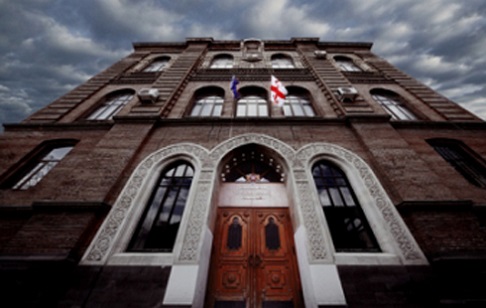Tbilisi sees cynicism in Moscow’s annual Foreign Ministry report

The Russian Federation’s claims that Tbilisi’s refusal to stop calling Sokhumi and Tskinvali as "occupied regions”, as well as Georgia’s aspirations towards European and Euro-Atlantic integration are an obstruction towards normalising Russia-Georgia relations, have been slammed by Georgian officials.
This perspective of Russia was expressed in a report on "the main results of activities of the Russian Foreign Ministry in 2014 and medium-term objectives” – a document published on the Ministry’s website yesterday where the agency summed up the past year.
This statement was not welcomed in Tbilisi.
Georgia’s Foreign Ministry issued a responsive statement today that said Russia continued to impose "its own reality” on the world, resulting from its large-scale military aggression against Georgia in 2008. Seven years later Russia still persisted to refer to Georgia’s integral territories – Abkhazia and the Tskhinvali (South Ossetia) region as "independent republics”.
"Moreover, the Kremlin cynically suggests to Georgia that is should sign a document on the non-use of force with its own regions. The tone of the document over the fact that Georgia still refers to the Russian-occupied Abkhazia and Tskhinvali regions as occupied territories is completely beyond our understanding. Disregard for the norms and principles of international law has already become the Russian Foreign Ministry’s trademark, over which we can only express our regret,” the Georgian Foreign Ministry said.
"If you take a closer look at the report it becomes evident that the main reason behind the Russian Foreign Ministry’s discontent is Georgia’s European and Euro-Atlantic course.”
The Ministry added that every country had a sovereign right to choose for itself whether it joined any association of alliance.
"Besides, integration with European and Euro-Atlantic organisations is the choice of the majority of the Georgian population and political parties,” said Georgia’s Foreign Ministry.
While Georgia frowned upon parts of the Russian Foreign Ministry’s report, Georgia accepted some of the report’s content – such as the part of the Russian report which underlined several recent positive changes in Russia-Georgia relations.
The Russian Ministry said opening Russian markets to Georgian products was "mutually beneficial” for both countries.
In addition, restoring regular direct flights between Tbilisi and Moscow was also assessed as a positive change, which "significantly improved humanitarian and business contacts” between Russia and Georgia, said the Russian side.
The full report was 106 pages long and was published in full on the Russian Foreign Ministry’s website in Russian.
 Tweet
Tweet  Share
Share